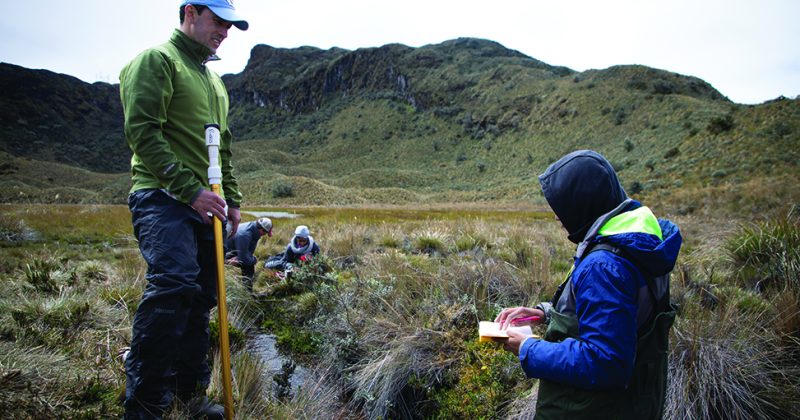
In an undergraduate course created by Winston Center researchers, students are asked to spend 24 hours without using a phone — no texts or social media. (Photo courtesy of Adobe Stock.)
With groundbreaking research linking social media habits to brain changes, the center also provides career training and public awareness.
“We knew that we had done something amazing scientifically.”
That’s what Eva Telzer, co-director of Carolina’s Winston National Center on Technology Use, Brain and Psychological Development, said about the moment in late 2022 when the center’s research team analyzed results from the first-ever study linking teens’ habitual checking of social media to changes in their brains’ development.
Doctoral students Kara Fox and Maria Maza, the study’s primary authors, are part of the center’s team that leads a fairly new research field — the role of technology and social media on adolescent brain development.
The Journal of American Medical Association Pediatrics published the findings in January 2023. By then, a $10 million gift in March 2022 from the Winston Family Foundation had expanded the team’s work by creating the center. Mitch Prinstein, the John Van Seters Distinguished Professor in the department of psychology and neuroscience, and Telzer, associate professor of psychology and neuroscience, have served as co-directors since its inception.
The center not only has multiple potentially life-changing research studies underway, but it also trains students for scientific careers. The multitiered team prioritizes education, outreach, research, public health and teen engagement.
Prinstein’s and Telzer’s work to build the blockbuster research program goes back to 2018. It coincided with the end of a decade of dramatic changes in how adolescents learn — about social interaction, emotions, distinguishing between right and wrong.
Interest grew along with the availability of digital technology. “We’ve seen a remarkable increase in the amount of time that kids spend using technology and social media platforms,” Prinstein said. “That use has been associated with a concomitant decrease in other activities like sleeping and reading.”
The study in JAMA Pediatrics complemented earlier research by Prinstein and Telzer which collected objective measures of teens’ social media and tech use. They asked hundreds of teens to take a screenshot of their phone’s built-in record of use data each day. For 14 consecutive days, the teens sent screenshots to Winston Center researchers, showing daily hours of use, total notifications and how many times they handled their phones.
The jaw-dropping results: Teens, on average each day, pick up their phones 100 times and spend 500 minutes, or more than eight hours, on their phones.
Some might say the numbers indicate a crisis, Prinstein said. The teens reported that after using social media they felt increased loneliness and less connected to their peers and craved more social interaction. “The very behavior that they go online for — to seek social connection and relationships with friends — actually causes them to feel more lonely and less connected,” he said.
In addition to research, one of the center’s first goals was to create a course in which undergraduates explore the science of social media, technology and brain development. Psychology 180 is open to all undergraduates and has been a hit. The course has been taught several times, with over 800 students enrolling.
One course assignment is to spend 24 hours without using a phone for anything other than coursework — no texts, no social media. Telzer said that some students could not do it because reaching for their phones was an automatic response, while others were able to connect with peers, sleep better and be in the moment more.
The center has also created videos, a middle-school curriculum and other resources on the website teensandtech.org for people to learn about how digital media can affect children and adolescents.
“We’re just getting started,” Telzer said. “We hope to expand our curriculum to younger ages and continue getting the science out there and helping people to understand why what we study is so important.”
By Scott Jared, The Well
Read a longer version of this story in The Well.
Published in the Spring 2023 issue | The Scoop
Read More

UNC-Chapel Hill named top producer of Fulbrights
The Department of State’s Bureau of Educational and Cultural Affairs…

Carolina wins grant for climate change research in Ecuador
With a grant from the 100,000 Strong in the Americas…

Approaching AI through an interdisciplinary lens
As anticipation and anxiety fuel debates about artificial intelligence, UNC’s…

